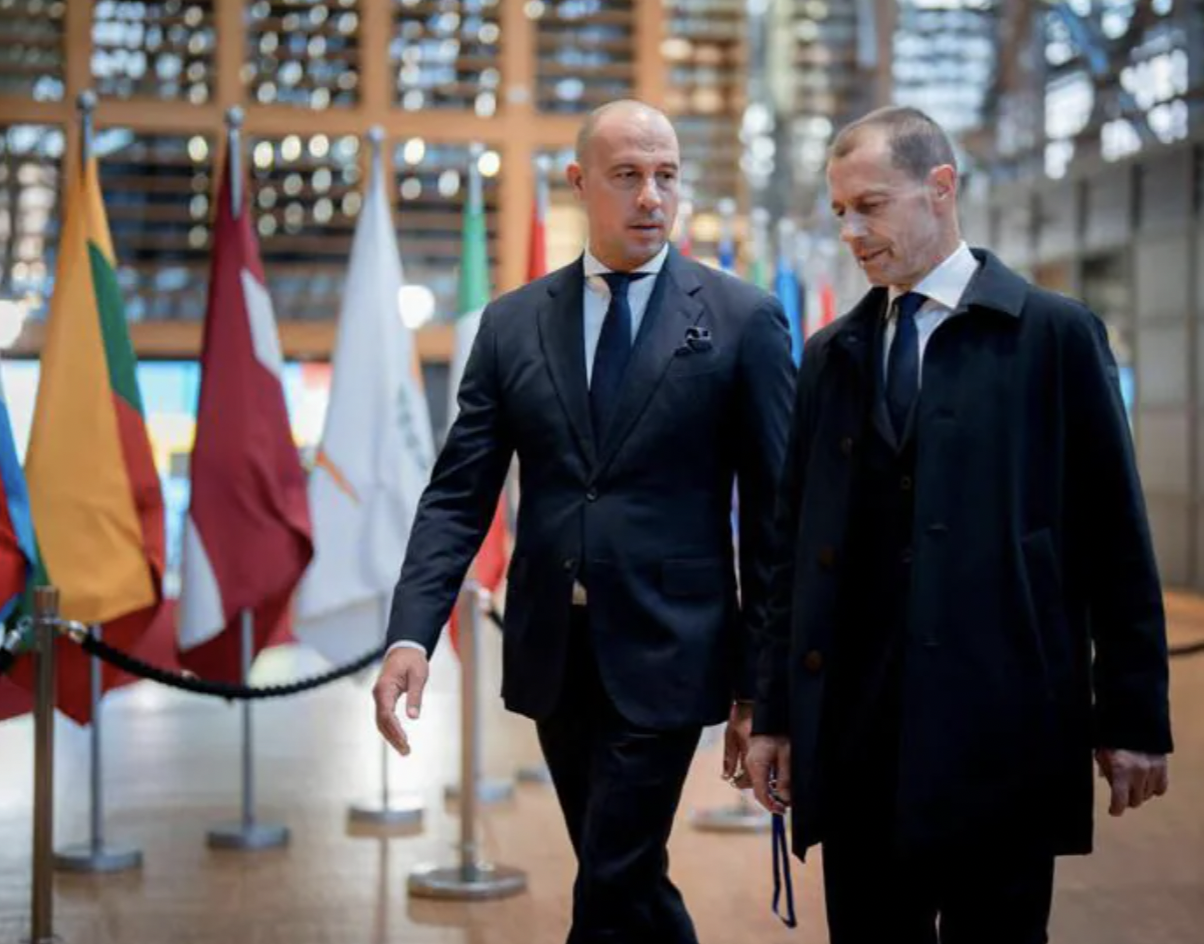November 27 – Addressing the Council of EU sports ministers on Tuesday in Brussels, UEFA president Aleksander Čeferin called for “legal certainty” to protect the European sports model.
The 27 EU member states represented in the audience were urged to take action to protect sport and its core principles.
“For 70 years, the European sports model has been built on principles of open competitions, promotion and relegation based on sporting merit, financial solidarity and recognition of sport’s social impact,” said Čeferin said. “These principles have guided UEFA since its foundation.”
EU sports ministers supported the model with a joint declaration in February. That came on the heels of the failure of the proposed Super League (driven by a closed-shop cabal of Europe’s biggest clubs) to get out the starting blocks after furious protests from fans, clubs, leagues and governing bodies.
But with the door having been legally re-opened to the potential for a Super League and Real Madrid in particular pushing for its establishment, Čeferin called on the European Commission to make regulatory moves towards implementing the 2021 Council resolution and protect the European sports model “from those who seek to destroy it for their own power and selfish gain.”
“It is a model that promotes the health of our citizens, builds facilities for our children and nurtures the hopes and dreams of fans, athletes and clubs – whether big or small, whether winning, losing or simply enjoying taking part,” said Ceferin.
“I am proud that UEFA and European football exemplify this model. But we could not do it alone. National governments play a vital role in this effort, [ensuring] that children have the opportunity to play, that communities benefit from sports facilities, and that the values of inclusion and participation are embraced across society.
“Sport is about so much more than ‘money’ and ‘markets’. Sport is not an asset for sale at auction. Football is not a ‘product’. Ask any fan and they will tell you!”
Emphasising that organised sport relied on solidarity he referenced the failed Super League’s first iteration and sport’s exposure to the greed of “operators who want more for themselves and to share less with others.”
“In some sports, it has already happened, [but] we cannot and we will not let this happen to European football. So let’s work together to create concrete legal safeguards to the key features of the European sports model in football,” said Ceferin.
“Firstly, the link between European and domestic competitions must be fully protected. Annual performance in domestic leagues must remain the sole criteria for qualification to Europe. To allow this link to be broken or twisted in any way would be a devastating betrayal of domestic leagues – iconic aspects of European heritage. For smaller football leagues and clubs, it is an existential question.
“Secondly, the balance between national team and club competitions must be preserved. This balance underpins the entire solidarity model and football development in your countries. If we don’t keep a healthy balance between national team competitions and club competitions, then we are placing in jeopardy all development at grassroots level,” he continued.
“Thirdly, the unified model of European football must be fully upheld. We must all realise that it is in the public interest to continue to protect this unified model.”
Cerferin spoke of UEFA’s not-for-profit mission being at the heart of its philosophy, saying that the organisation redistributes 97% of its net earnings back into football.
“Who else is committing such a share of revenue back to fundamental objectives like grassroots funding, developing the women’s game and supporting youth competitions?” asked Ceferin.
“This is not a cost. It is an investment. An investment in the game and an investment in people and communities. It is investment in the public interest.”
He also emphasised principles of inclusivity, democracy and a commitment to all football’s stakeholders.
Most important within this, in light of the noise around the international calendar and the introduction of FIFA’s Club World Cup and the strain it is putting on elite players, Ceferin referenced UEFA’s recently signed partnership with player’s union FIFPRO Europe “to include player representation in European football governance. Players are now at the heart of football, and their perspectives shape the decisions taken.
“This approach reflects a modern governance model where decisions are made collaboratively and inclusively.”
Contact the writer of this story at moc.l1745116386labto1745116386ofdlr1745116386owedi1745116386sni@n1745116386osloh1745116386cin.l1745116386uap1745116386

